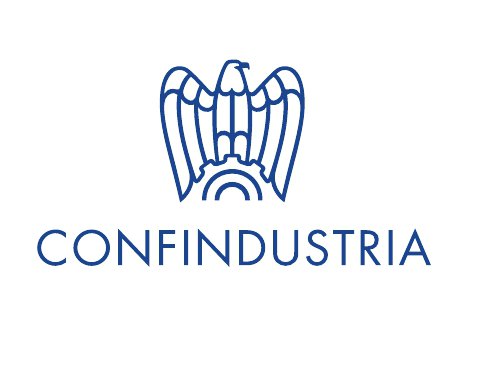Nike’s foothold in China appears to be slipping. Buoyed by a patriotism-fueled domestic boom, homegrown rival Li-Ning saw its brand value spike by 66 percent to $3.4 billion, the biggest gain recorded in a ranking of 100 most valuable Chinese brands this year. [Nike Rival Li-Ning is China’s Fastest-Growing Brand – SJ]
Li-Ning, which rose 27 spots to No. 64 on the list, enjoyed an “especially charmed year,” wrote Kantar BrandZ in a report published on Thursday. The company is closely tied to its namesake founder, a “national hero” who won three gymnastics gold medals at the 1984 Los Angeles Olympics and ignited the famed cauldron at the 2008 Beijing Summer Games.
“The runup to the Beijing 2022 Winter Olympics, then, proved the perfect platform for Li-Ning to market to Chinese consumers,” the data analytics firm said. “Beyond this, fitness gear had already gained in popularity as consumers looked to stay healthy during the pandemic—and local Chinese brands have been rising in favor, as foreign brands have waned in relevance. The result of all these factors was an ideal business environment for Li-Ning.”
Rival Anta Sports also reported positive brand value growth, albeit a more modest one at 8 percent. The Fila China operator climbed 12 positions to sit at No. 62, also with $3.4 billion. Both were eclipsed, however, by Alibaba, which ranked second below tech Goliath Tencent. The retail juggernaut took a hit of 32 percent from the previous year’s valuation, however, settling at $137 billion.
Nike was among a group of Western brands that faced calls for a boycott on Chinese social media last spring following a furor over their statements of concern regarding forced labor in Xinjiang’s cotton industry. Nike, together with Adidas and H&M, became the biggest targets of consumers’ nationalistic rage as their profits took a precipitous dive. H&M even vanished off Chinese commerce sites such as Tmall, though it was reinstated earlier this month with little fanfare and no explanation. Its outlet locations, however, are still missing on Apple Maps and Baidu Maps searches.
In June, Nike reported that sales in Greater China fell by 19 percent to $1.6 billion for the fourth quarter, marking the only region to post a loss. The Just Do It company blamed Covid-induced lockdowns, rising freight costs and other supply-chain headwinds for affecting 60 percent of its business in the area, though it expressed optimism that this was a temporary setback.
“We’re continuing to do what we’ve always done. Nike’s been in China for 40 years; we’ve always taken a long-term view. We believe that China remains a growth market with significant potential to unlock,” CEO John Donahoe told investors. “We have very strong equity with Chinese consumers, and the fundamentals haven’t really changed. We’re taking a medium- to long-term view, and we’re as confident today as we ever have been. Coming out of this lockdown we’re seeing increased energy from the Chinese consumer.”
Li-Ning experienced this enthusiasm from the start. The brand posted 12.4 billion yuan ($1.8 billion) in sales for the first half of 2022, a year-over-year increase of nearly 22 percent. Anta was no slouch, either. In interim results announced last week, revenue for the company jumped 14 percent to 26 billion yuan ($3.8 billion) in the six months ended June 30.
“In the wake of the pandemic, the public has paid greater attention to outdoor leisure activities, which acted as a catalyst to unlock the potential of many niche markets within the sports industry and opened up opportunities for our other brands to penetrate into new scenarios,” wrote chairman Ding Shizhong in the earnings report.
Outside China, both Anta and Li-Ning have been greeted with less warmth. In January, the U.S. Congressional-Executive Commission on China wrote to the International Olympics Committee (IOC) seeking “assurances” that Anta, which was outfitting Olympics for the 2022 Beijing Winter Games, wasn’t using cotton from Xinjiang.
“Cotton produced in the XUAR is synonymous with forced labor and the systematic repression that takes place there,” Democratic Senator Jeff Merkley of Oregon, Democratic Representative James P. McGovern of Massachusetts and Republican Representative Christopher Smith of New Jersey said at the time, using an acronym referring to Xinjiang. “There is a worrisome possibility that IOC personnel or others attending the 2022 Olympic Games will be wearing clothing contaminated by forced labor.”
Potential links to the persecution of Uyghurs in Xinjiang also led Norges Bank Investment Management to sell off its stake in Li-Ning in March. The world’s largest sovereign wealth fund, which operates the $1.3-trillion chest for the Norwegian central ban, cited the “unacceptable risk that the company contributes to serious human-rights violations.”
Its ethics advisory council, the fund said, had laid out the “well-documented” risks of sourcing cotton and textiles in Xinjiang, including Li-Ning’s cooperation agreement with suppliers such as Xinjiang Jinfujie Clothing Co., which public information revealed manufactured inside an internment camp using workers enlisted through a government-run labor-transfer program that targets ethnic minorities. Li-Ning has itself declared that it buys and will continue to buy cotton from the province.
The same month, U.S. Customs Border and Protection started detaining all Li-Ning shipments through the Countering America’s Adversaries Through Sanctions Act. The enforcement action, the agency said, was the result of an investigation that indicated the presence of North Korean forced labor in the footwear maker’s supply chain. It said that it would wave through some merchandise, but only if Li-Ning was able to provide “clear and convincing” evidence that the products were not made with forced labor within 30 days of the notice of detention.
Li-Ning later accused officials of making “incorrect” and “misleading” allegations about its operations, as it has “not discovered any case of forced labor” to date.
“As a professional sports brand company, the group has a sound corporate governance system in place, strictly complies with the laws, regulations and compliance policies of the [People’s Republic of China], and upholds ethical standards,” Li-Ning wrote in a filing to the Hong Kong Stock Exchange. “The group incorporates the principles of corporate citizenship and social responsibility into the relevant areas of its business development, and actively shoulders the responsibilities and missions of promoting synergistic development of the environment, the society and corporate governance with concrete actions.”



